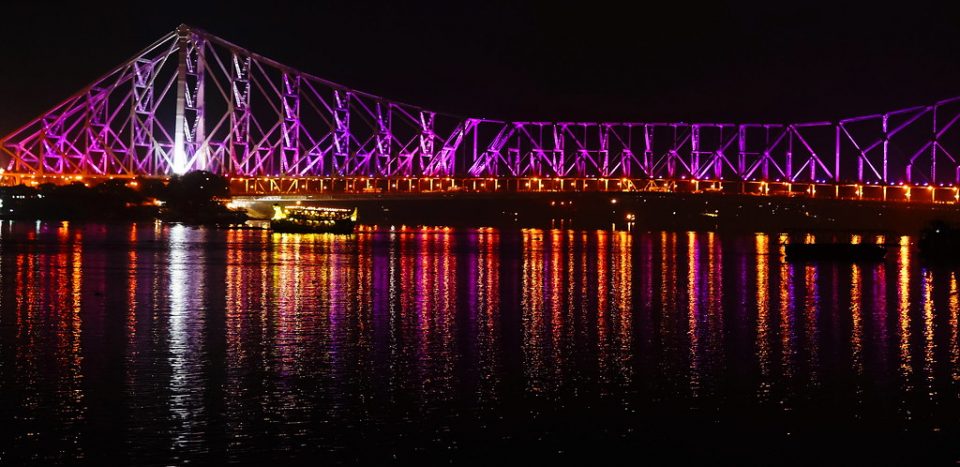
Amid COVID, West Bengal says no strict curbs on New Year, Gangasagar Mela

The West Bengal government is not going to impose any strict restrictions on New Year celebrations and has also decided to go ahead with the annual Gangasagar Mela, even as the Health Department predicted a third wave of COVID-19 in the state within a week.
The Union Health Ministry also alerted the state on Thursday about the surge in COVID-19 cases, particularly in Kolkata.
Notwithstanding the spike, Chief Minister Mamata Banerjee said that her government is not in favour of preventing people from celebrating, a stand that has drawn flak from the opposition.
The government, however, suspended all direct flights from the United Kingdom to the state with effect from January 3.
Also read: West Bengal bolsters health sector, but gaps remain
“In view of the rising number of Omicron cases globally as well within the country, the state government has decided to temporarily and until further orders suspend all direct flights from the United Kingdom to Kolkata with effect from 3rd January 2022,” the West Bengal government wrote to the Civil Aviation ministry.
“All passengers coming from other not-at-risk countries by international flights to West Bengal will have to mandatorily undergo a test on arrival at their cost from January 3, while the airlines will randomly select 10 per cent of the passengers for the RT-PCR test and the balance 90 per cent shall undergo Rapid Antigen Test (RAT) at the arrival airport,” the letter said. “Those found positive in the RAT test will have to further undergo RT-PCR tests as may be required by the health authorities,” it added.
Unlike in many other states, the West Bengal government is however not going to impose any night curfew or any other stringent restrictions to stop New Year revelry, though the police said that the crowd would be regulated. The state is also making all preparations to hold the Gangasagar Mela.
“How can we stop the New Year celebrations? But we will keep watch on it. We are urging all to follow the COVID-19 protocols,” Banerjee told media persons, when being asked whether her government would impose any restrictions on the New Year revelry, as has been done by some other states.
Also read: Pandemic waning, but hotspots still active in 27 districts of 10 states
About the Gangasagar Mela, Banerjee said, “We can’t stop it. It is a people’s fair. Can I ask the pilgrims from Bihar or Uttar Pradesh not to come to the fair? If they think it is not safe, they will not come…. We will ensure that the COVID-19 protocols are being followed.”
Every year, lakhs of Hindu devotees from around the world take a holy dip in the confluence of the river Ganga and Bay of Bengal at Sagar Island in South 24 Parganas district on the occasion of Makar Sankranti.
The Gangasagar Mela, considered to be the second largest public congregation after the Kumbh Mela, will be held from January 8 to January 16.
The Sagar Island, the venue of the congregation, is about 80 km south of Kolkata, where the COVID-19 graph has doubled in the past 24 hours, raising concerns that the two events might turn into a super spreader.
“Only the Chief Minister can explain this strange decision of not putting restrictions on the celebrations and programmes. Other states like Maharashtra have taken a wise decision to stop the New Year celebrations. This is not the time for mass gathering,” said state BJP president Sukanta Majumdar.
Majumdar’s predecessor Dilip Ghosh is also of the opinion that the Gangasagar Mela should have been suspended this year to avoid a further surge in COVID-19 cases.
As per the health bulletin released on Thursday evening, 2,128 new COVID-19 cases have been detected in the state in the past 24 hours. Of the new caseloads, Kolkata has alone contributed 1,090 positive cases, more than double of the previous day’s figure of 540 new cases.
The positivity rate in the state has increased to 5.47 per cent from 1.71 per cent on December 25.
The positivity rate in Kolkata is more than 15 per cent, according to the Health Ministry. So far, 14 Omicron cases have been detected in the city. Three new cases of this muted variant of the virus were registered on Thursday, among them two had recently returned from the UK.
“Please note that in West Bengal, Kolkata has reported a sudden and significant surge in cases in the last two weeks. This issue needs to be addressed proactively and immediately to ensure that neither the transmission spreads further nor do we reach a situation of increased mortality due to late detection of the cases,” Union Health Secretary Rajesh Bhusan wrote to his West Bengal counterpart Narayan Swaroop Nigam.
Even the Chief Minister admitted that the cases are increasing in the state. But to prevent a third wave, she hinted that her government, instead of imposing any extensive curbs, would prefer reintroducing localised containment zones, slashing in-person office attendance in offices and even closing educational institutions, if needed.
“Due to the COVID-induced restrictions, the economy has suffered in the last two years. Any fresh restrictions will increase the hardship of the people. We don’t want that. We are reviewing the situation, and if needed we can go for wider restrictions in some pockets,” Banerjee said.
Also read: COVID third wave started in Mumbai, Delhi: Task Force member
An internal assessment of the State Health Department indicated that, in a week, the state will witness a daily caseload of 30-35,000. During the peak of the second wave, the daily caseload was 20,000-25,000.
Meanwhile, the state government will roll out vaccines for the children in the age group of 15 to 18 from January 3. It will also start administering booster or precautionary doses of the COVID-19 vaccine for the co-morbid patients aged 60 years and above from January 10.


